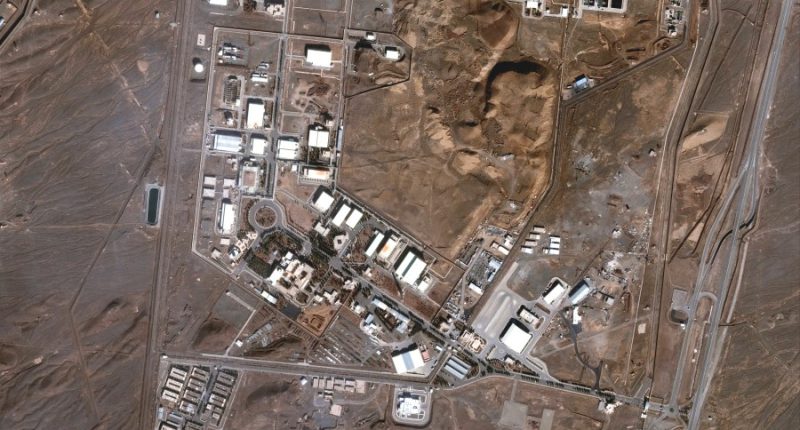Share this @internewscast.com

() The U.S. conducted three strikes on nuclear facilities in Iran on Saturday night, using bunker bombs to target underground facilities at Fordow, Natanz and Isfahan.
The decision by President Donald Trump to join Israel’s military campaign against Iran is a major shift in the Middle East, with potentially far-reaching repercussions.
Are we going to war?
The U.S. has not officially declared war on Iran, something that can only be done by Congress. The White House has also indicated that no further strikes are planned and that Trump hopes the bombings will prompt Iran to engage in diplomacy.
Previously, Iran warned that any U.S. strikes would be considered a declaration of war by the country. Iranian leaders have not yet issued a response to the action.
Will US troops be sent to Iran?
Trump has not announced any plans for deeper involvement, including the possibility of boots on the ground. However, that situation could change depending on how Iran responds to the attacks.
What retaliation could Iran take?
Iran could come to the negotiating table, as Trump hopes, though Iranian leaders have said that negotiations for a nuclear deal were a nonstarter as long as Israel continued to conduct airstrikes against the country.
Iran could also retaliate against American targets in the region, including bases where troops are stationed, something it has threatened to do if the U.S. were to get involved in the conflict.
The attacks could also prompt Iran to accelerate the development of nuclear weapons. The country’s ability to do that would depend on the level of damage done to the nuclear sites and whether there are other, secret nuclear facilities that could be put to use.
Iran does not have weapons capable of reaching the U.S., which would limit targets to American interests in the Middle East. However, the administration has also warned of sleeper cells within the U.S. that could be activated.
Iran could also turn to its better-armed allies, Russia and China, though it’s unclear that either country would have the capacity or will to enter a conflict with the U.S.
It’s also possible that the strikes could weaken Iranian leadership enough for regime change in a country where many citizens have protested against the leadership of Ayatollah Khamenei and the restrictive religious laws that govern the nation.
Was this constitutional?
Some lawmakers have spoken up against the strikes, calling Trump’s actions unconstitutional, though there is likely to be legal debate over those statements.
The Constitution gives Congress the ability to declare war, which it has not done in this case. There is also no authorization of military force from Congress that would allow the president to strike Iran.
However, the president is granted some authority to take military action without congressional action if it is needed to protect the nation’s interests and does not constitute war in the traditional sense.
Debates over the constitutionality of Trump’s actions will likely center around whether the strikes were necessary to protect America’s interests and whether they constitute an act of war.













